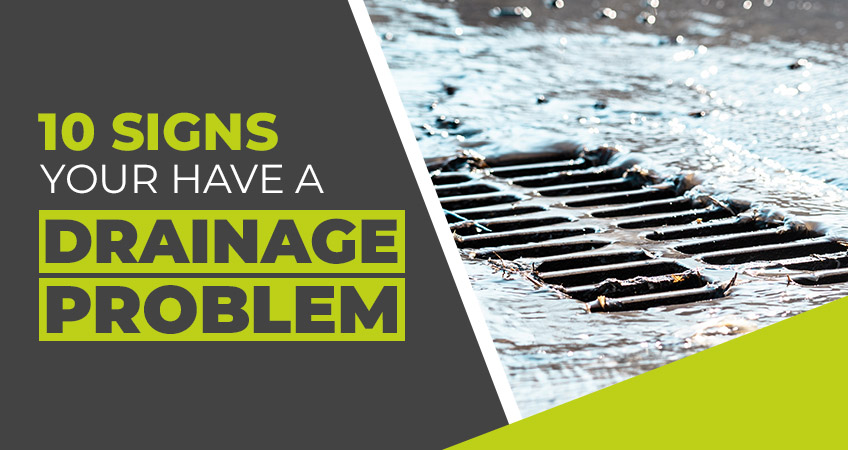No one wants to deal with drainage problems, but spotting the early warning signs can save you a lot of time, money, and headaches down the line. At Any Drains, we pride ourselves on being your go-to drainage experts, ready to tackle even the trickiest drain issues.
This blog will walk you through the most common signs of drainage problems, covering what to look out for inside and outside your home.
We’ll even explore DIY fixes for minor issues, when to call in the professionals, and how Any Drains can help.
Common drainage problems – telltale signs
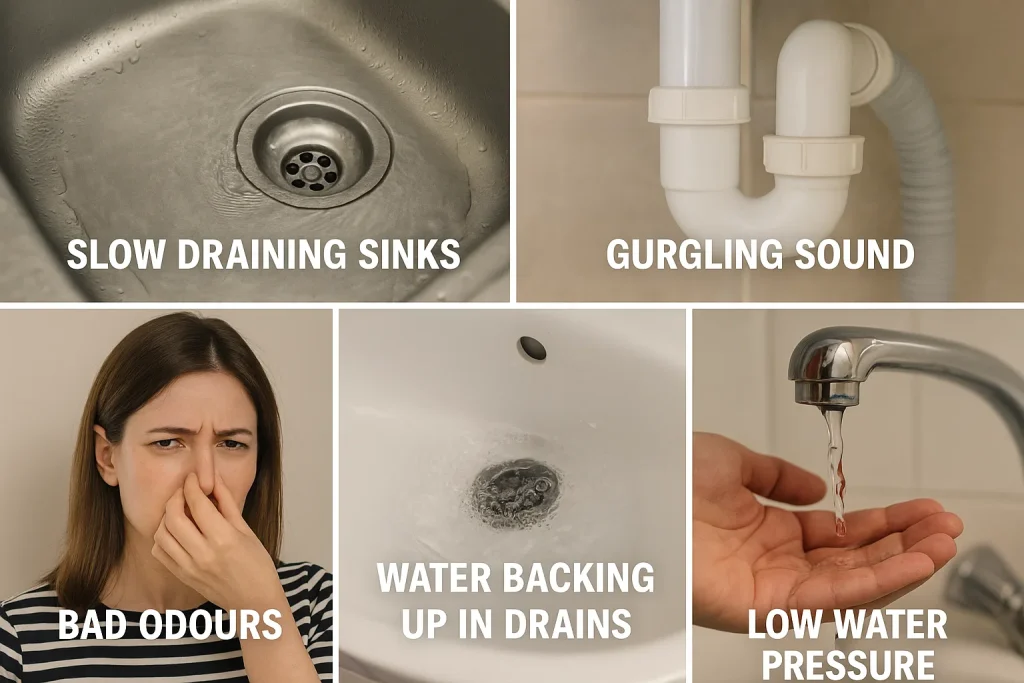
Drainage issues aren’t always obvious at first, but they rarely fix themselves. Look out for these telltale signs around your home:
Slow draining sinks or bathtubs (poor drainage)
Notice water lingering in your sink or bathtub longer than usual? Slow-draining water is one of the most common signs of a problem. It’s often caused by buildups of hair, soap scum, food scraps, or other debris trapped in the pipes.
While it might seem like a minor inconvenience when your water doesn’t flow smoothly, ignoring it can lead to more severe blockages further down the line. A professional drain cleaning might be all it takes to restore free-flowing water.
Gurgling sounds coming from your drainage system
If your drains are making strange, gurgling noises, don’t ignore them! Gurgling sounds are typically caused by air trapped in your pipes due to partial blockages.
This seemingly innocent noise could indicate a more significant issue in your drainage system, potentially leading to complete clogs or even damage if left unresolved.
Bad odours coming from blocked drains
A nasty smell wafting up from your sink or shower drain? That’s often caused by organic matter like food, hair, or grease decomposing in your pipes. Apart from being unpleasant, it can also pose health risks from bacteria or mould growth. Tackling foul odours early prevents more serious problems and keeps your home fresh.
Water backing up in drains
Seeing water come back up instead of draining down is a clear red flag that there is an issue with a drainage pipe. It could indicate anything from a minor blockage to a damaged structure, but often signals blockages in your main drain line. Left untreated, it can lead to flooding or even sewage backups. If this happens, call drainage experts immediately to prevent further damage.
Changes in water pressure
A sudden drop in water pressure can be linked to drainage problems. Blocked or damaged pipes may reduce the flow of water, affecting your taps and shower. This is something you’ll want to address as soon as possible to keep your plumbing in top shape.
Identifying drainage problems outside your home
Sometimes, drainage issues manifest outside your home, so be sure to inspect these areas too:
Standing water in your garden
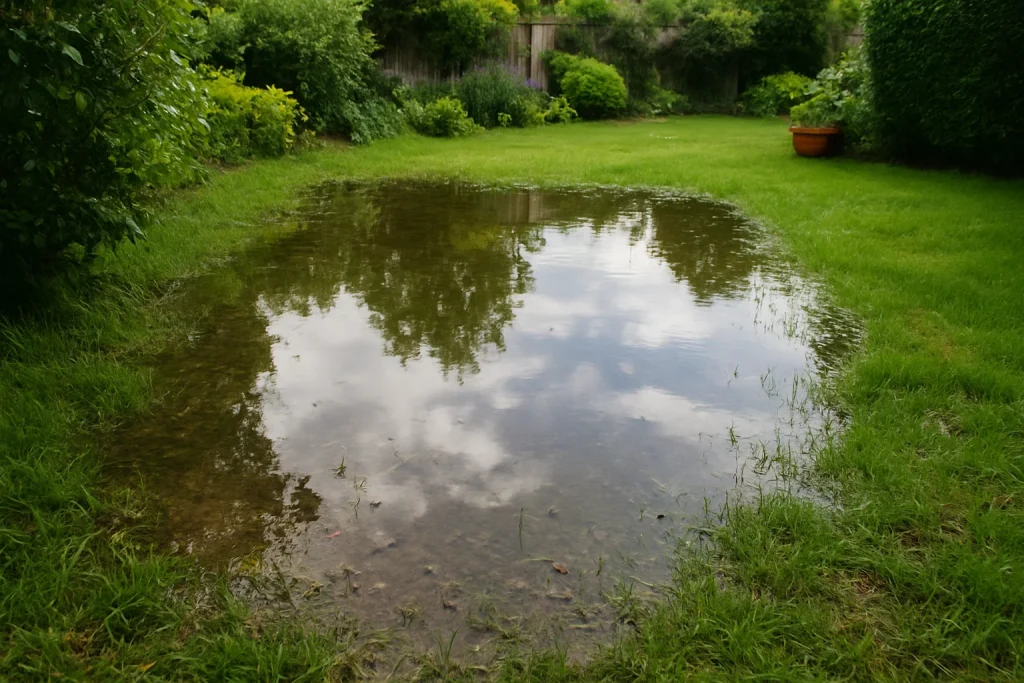
Do you notice puddles or water pooling in your garden, even when you haven’t recently had heavy rain? Standing water could be a sign of poor drainage, clogged gutters or a broken pipe caused by tree roots. Beyond being an eyesore, it can attract mosquitoes, harm your garden, and even damage your home’s foundation.
Soil erosion around your foundation
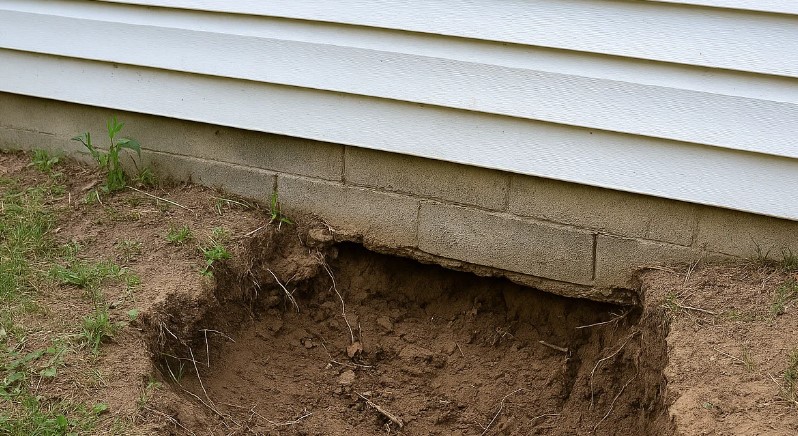
Water pooling in the surrounding area of your property can erode the soil around your foundation over time. This can lead to serious issues like cracks or structural instability. If you spot erosion, it’s time to investigate the root cause.
Wet or damp basement
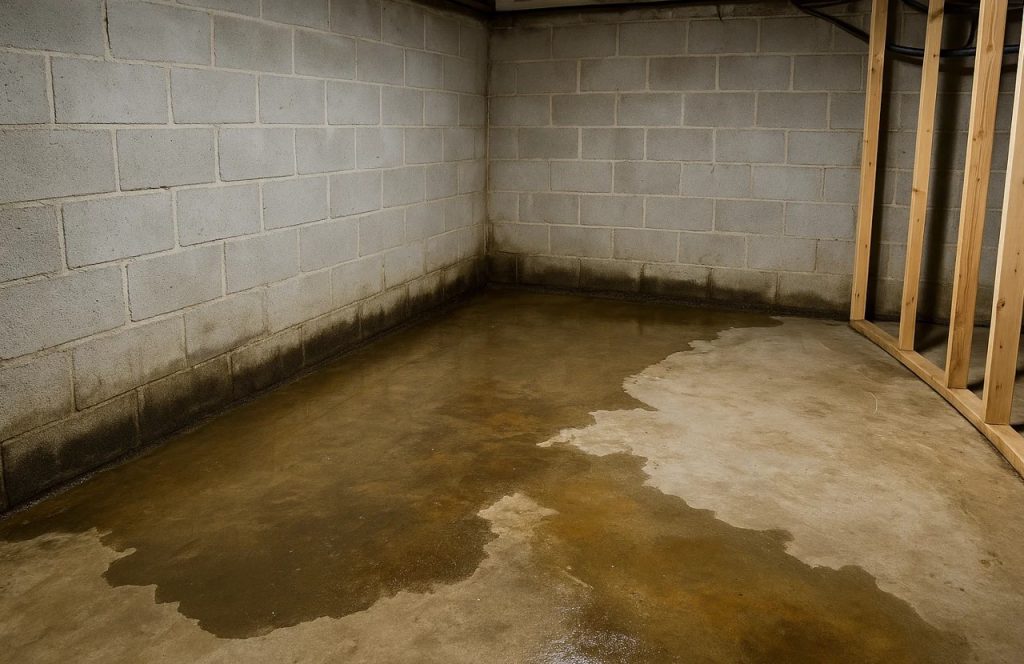
A damp basement is often a result of poor drainage or water seeping into your foundation. This can lead to mould growth and structural damage if ignored. Installing proper drainage systems can help keep your basement dry and your home safe.
DIY solutions for minor drain problems
If your drainage problems are minor, you might be able to resolve them yourself. Here are some handy DIY solutions:
Using a plunger
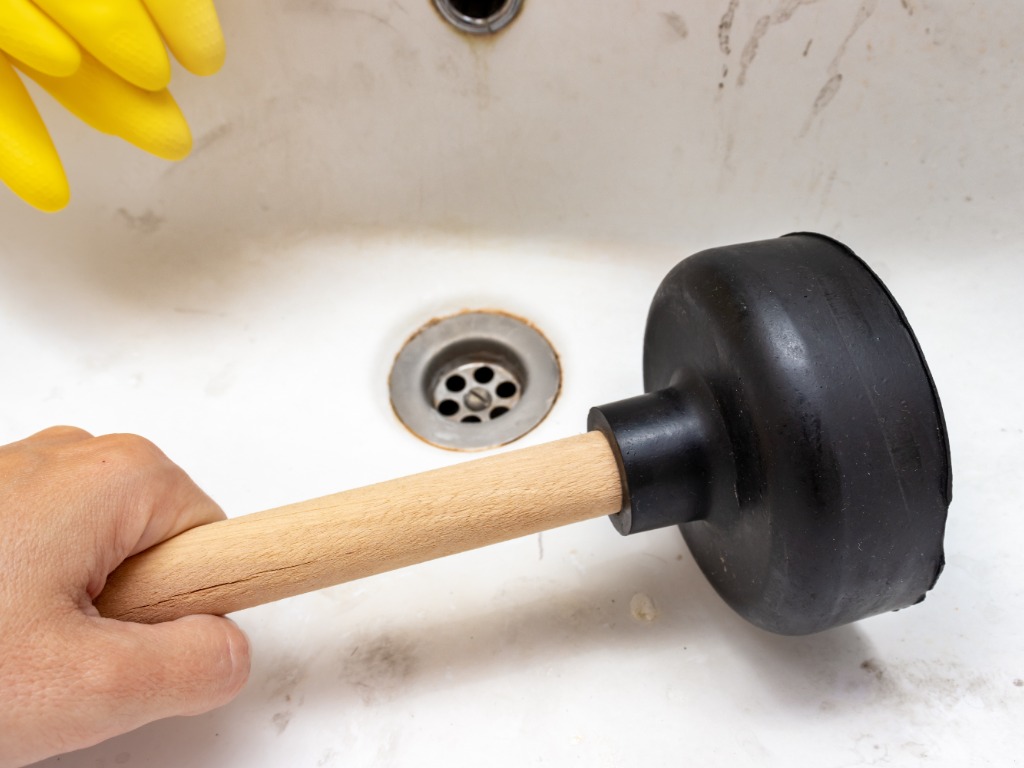
A classic tool for clearing blockages, a plunger can be surprisingly effective for unclogging drains. Place the plunger over the drain, create a seal, and pump vigorously. While great for small clogs, a plunger may not work on severe blockages deeper in the pipes.
Using a drain snake
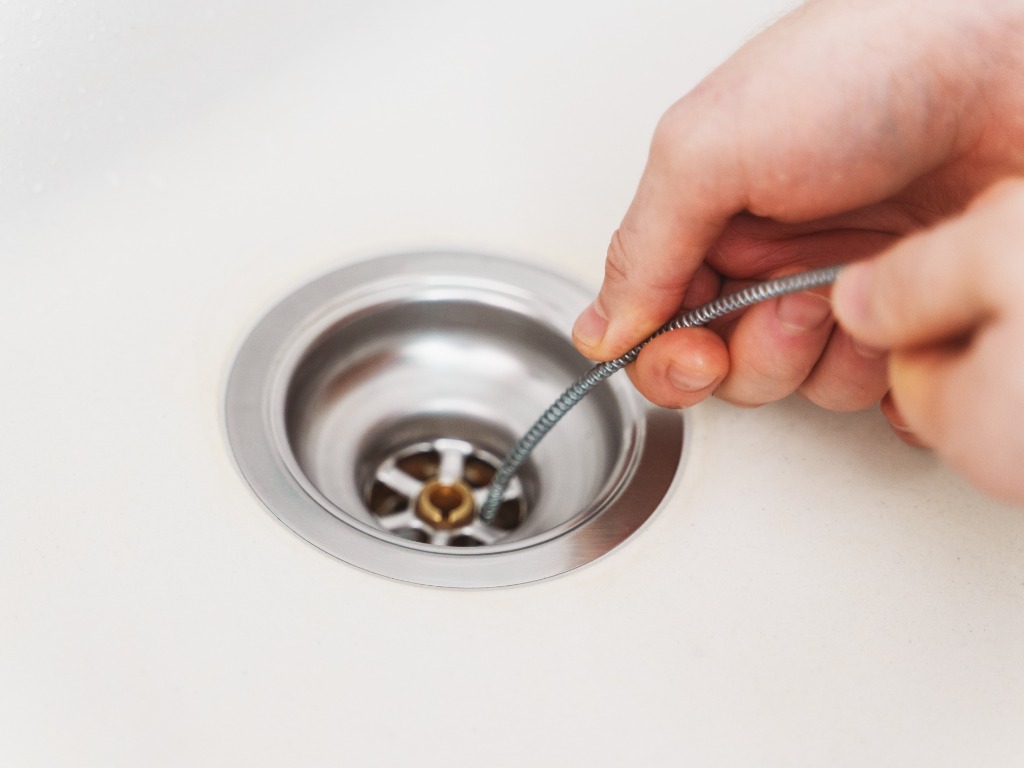
A drain snake, also known as a plumber’s auger, can help reach blockages a plunger can’t. Insert the snake into the drain and twist to break up the clog. While effective, be cautious to avoid damaging your pipes.
Using baking soda and vinegar
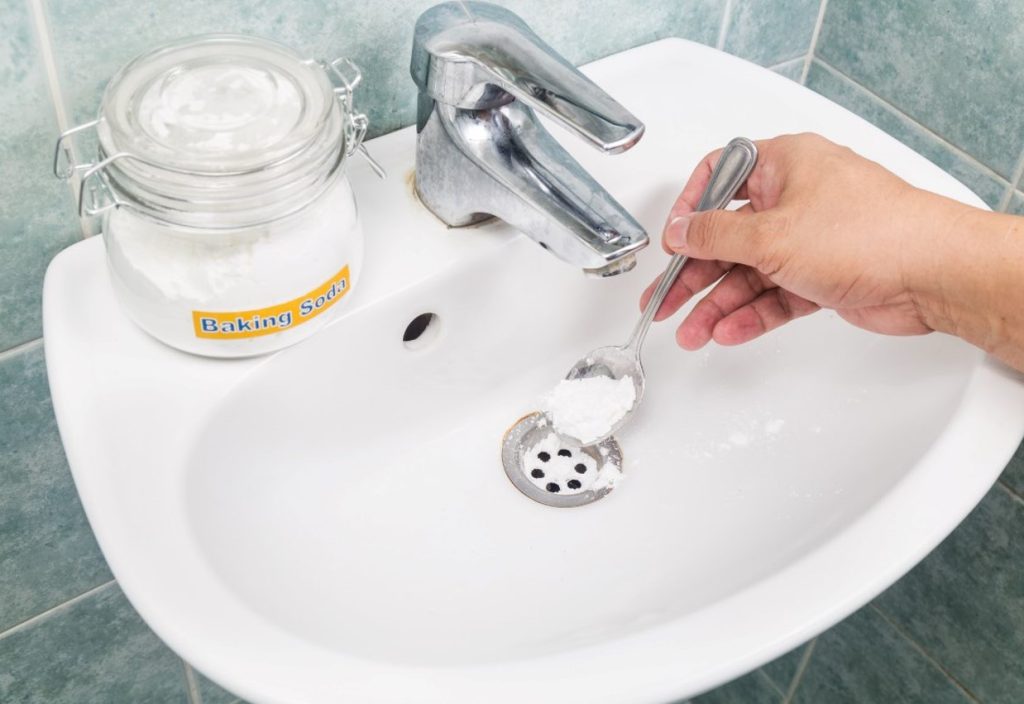
This natural cleaning method can help dissolve minor clogs. Pour a cup of baking soda followed by a cup of vinegar into the drain. Cover it and wait 15-30 minutes, then flush with hot water. Bear in mind, this works best on small blockages and isn’t a guaranteed fix.
When to call a professional drainage expert
Some drainage problems are too complex to handle on your own. If you notice any of the following, it’s time to call the experts so they can investigate and decide on the best course of action:
Recurring drainage problems
If blockages keep coming back even after you’ve cleared them, you may have a deeper issue that requires professional attention.
Multiple clogged drains
When more than one drain is clogged at the same time, it could be a sign of a problem in your main sewer line.
Sewage backup
If sewage starts backing up, don’t wait. This is a serious health and safety hazard that requires immediate professional assistance.
Unusual or persistent odours
Bad smells that just won’t go away could indicate something more serious than a minor blockage and should be investigated by a professional.
FAQ
How often should I have my drains cleaned?
It’s recommended to have your drains professionally cleaned at least once a year as part of regular home maintenance. However, if you notice any of the signs listed above, it’s best to schedule a cleaning sooner rather than later.
Can I use chemical drain cleaners to clear a blockage?
While chemical drain cleaners may seem like a quick and easy solution, they can actually cause more harm than good. The harsh chemicals used in these products can damage your pipes and create larger blockages further down the line. It’s best to avoid using them and instead opt for natural or mechanical methods of clearing blockages.
Are there any preventative measures I can take to avoid clogged drains and keep them properly maintained?
Yes, there are several things you can do to prevent blockages in your drains.
- Regularly pouring boiling water down your drains can help dissolve any buildup or debris that may be accumulating.
- Use drain screens or catchers in sinks and showers to catch hair, food particles, and other potential clog-causing items.
- Avoid pouring grease or oil down the drain, as they can harden and cause buildup over time.
- Be mindful of what you flush down the toilet and avoid flushing items such as paper towels, wipes, feminine hygiene products, and cotton balls. These items do not break down easily and can cause major clogs.
How effective are CCTV drain surveys in identifying drainage issues?
CCTV drain surveys have become increasingly popular in recent years for identifying drainage issues. This technology involves using a small camera attached to a flexible rod that is inserted into the drain pipes. The camera provides a real-time video feed of the inside of the pipe, allowing plumbers to see any blockages or damage.
One major advantage of CCTV drain surveys is their accuracy in pinpointing the exact location and cause of a drainage issue. This eliminates the need for guesswork and minimises unnecessary digging or disruption to your property. The real-time footage also allows plumbers to make immediate decisions and come up with effective solutions.
Additionally, CCTV drain surveys can save homeowners time and money in the long run by identifying potential issues before they become major problems.
Conclusion
Proper maintenance and care of your plumbing system is essential to ensure its longevity and functionality. By following the tips mentioned in this guide, you can prevent major plumbing issues and save yourself from costly repairs.
Remember to regularly check for leaks, clean out drains, and be mindful of what goes down your pipes. If you do encounter a plumbing problem, it’s best to call a professional plumber for assistance. With proper care and attention, your plumbing system will continue to run smoothly for years to come.
Keep your drains in check with Any Drains
Drainage problems can start small but escalate quickly if left unaddressed. By recognising the warning signs early and knowing when to call in the experts, you can protect your home and avoid costly repairs. If you’re dealing with drainage issues, don’t wait. Contact Any Drains today to schedule a visit from our friendly professionals and experience first-class service firsthand.
 01732 667 688
01732 667 688


